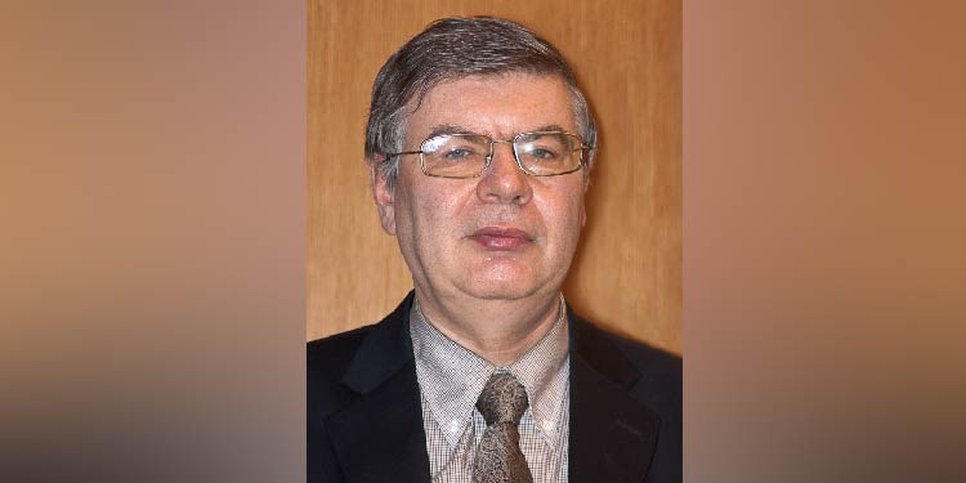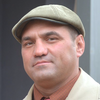Photo: Sergey Ivanenko
Photo: Sergey Ivanenko
The well-known religious scholar Sergey Ivanenko spoke in the trial of Jehovah's Witnesses. What did he say?
Saratov RegionOn September 4, 2019, in the trial of six Jehovah's Witnesses in Saratov , the floor was given to the well-known religious scholar, Doctor of Philosophy, State Counselor of the Russian Federation Sergey Igorevich Ivanenko. Here are excerpts from his testimony.
On the doctrine of Jehovah's Witnesses. "Jehovah's Witnesses can be called a denomination, it is an independent movement in Christianity. It is not the most numerous - according to the latest data, there are about 8 and a half million Jehovah's Witnesses in the world. One of the main features of Jehovah's Witnesses is that the so-called last days have now come, that is, Jesus Christ has already reigned in heaven as a rightful ruler, and Jehovah's Witnesses must obey him as their religious leader and mentor. Therefore, they must preach, very zealously fulfill the precepts that support the Holy Scripture of Christians - the Bible, and be guided by them in their daily lives.
"If Jehovah's Witnesses believe that the head of their congregation is Jesus Christ, he is the Son of God, if they recognize the Bible and study the Bible, call themselves Christians, from a religious point of view, they are also a trend within Christianity."
On the religious life and practice of Jehovah's Witnesses. "Jehovah's Witnesses have a very significant feature: they do not rely on some harsh disciplines, the authority of some leaders, but try to form a conscience trained in the Bible among their followers, so that a person can independently, voluntarily make decisions following the Bible."
"Jehovah's Witnesses try to follow what is in the Bible, which should correspond to the principles that were laid down by Jesus Christ and his disciples in the first century AD."
"If we talk about joint confession of faith, which is expressed in Bible study, answering questions on biblical topics, singing songs that are also based on biblical texts, then Jehovah's Witnesses have an emphasized desire to rely on the Bible in everything. That is, if we are talking about a religious chant, at the very beginning there is necessarily a reference to which biblical text this term is based, the lyrics of the song, what it should express from the point of view of the religious needs and beliefs of the believer.
"They also have the conviction that Christians must necessarily carry out their religious life on the basis of meetings. And here, too, Jehovah's Witnesses analyze the New Testament, what is said about Jesus Christ, his disciples, his followers, about the first stages of the development of the Christian church... Jehovah's Witnesses are convinced that they should also practice their religious life in religious meetings."
"They emphasize that disciples of Jesus Christ can be recognized by the fact that there will be love between them."
On the alleged ban on the religion of Jehovah's Witnesses in Russia. "I am not aware of any court decisions or legislative acts that would say that the internal structure of Jehovah's Witnesses contradicts the legislation of the Russian Federation, and would contain any prohibitions related to the doctrine or cult practice of Jehovah's Witnesses."
"It was not about banning worship services, some kind of cult actions, but it was about what from the point of view of the Supreme Court was considered as extremist activity."
Accusations of extremism against Jehovah's Witnesses. "Initially, some publications of Jehovah's Witnesses were recognized as extremist, in which, according to experts, it was claimed that the religion of Jehovah's Witnesses was the only true one, and the rest of the religions were false. This statement is present in other denominations, but in this case the claims were made against Jehovah's Witnesses. The assertion that only their religion was true and that all others were false was interpreted as propaganda of religious superiority.
"[The court's decision] seems to me as a religious scholar to be vulnerable from the point of view that, if desired, in any religious denomination you can find the statement that only our religion is correct, and the rest are false or largely mistaken."
"If we talk about the fact that believers consider their religion to be absolute truth, and other religions are either completely false or essentially false, this is certainly present in any believer. And it must be present, because otherwise you will be credited with a hypocrite.
"Jehovah's Witnesses are pacifists, they are quite consistently pursuing a line so as not to destroy social foundations. Rather, they advocate the primacy of biblical principles. God's laws are a priority for them. But to the extent that God's laws do not contradict earthly laws, Jehovah's Witnesses are very consistent and purposeful in trying to keep earthly laws. It is no coincidence that there are quite a few reports that it is Jehovah's Witnesses who return some lost wallets, pay fines and taxes, although they can evade them. This is their conscious choice, and in this sense I would not blame them for any extremist encroachments."
On the need for legal entities to profess their faith. "The decisions of the Supreme Court of the Russian Federation show that ... most of the congregations of Jehovah's Witnesses did not have a legal entity and were not registered. Therefore, it is wrong to say that any Jehovah's Witness in some territory is necessarily a member of a legal entity."
"The main content of the activities of Jehovah's Witnesses is carried out by those canonical structures that are created in accordance with biblical principles."
"As for legal entities ... I carefully studied their statutes, there are no overseers, no elders, no pioneers, none of these terms are present there. There we are usually talking about the founders - this is a limited circle of people, about 10 people. As for purely canonical activities, they reflect not the legal, but the canonical side of the activities of Jehovah's Witnesses. It is the same in different countries and in different regions."
"Jehovah's Witnesses have taken note [of the Supreme Court's decision], that is, in their activities they strive not to explicitly violate this decision of the Supreme Court. But at the same time, they will continue their activities as a religious denomination that is not prohibited by the authorities. They continued their activities as private individuals professing their religion. That is, from their point of view, from a religious point of view, this activity does not violate the decision of the Supreme Court."
On the preaching activity of Jehovah's Witnesses. "Jehovah's Witnesses are distinguished by the fact that they are very active in preaching. I would put Jehovah's Witnesses in the first place in terms of their preaching activity, zeal, so that every believer must be a preacher and devote some time to preaching."
"They usually say this: the Bible says this, a person can take the Bible himself and check it. If a person agrees, he goes along with them. If he disputes it, he doesn't go with them. There is no compulsion. But their explanation is consistent and logical in its own way. This is the attraction for some people of their preaching. Their preaching does not work, in my opinion, for everyone. If a person is more mystical, wants some revelations from God or some supernatural spiritual powers, he will not go to Jehovah's Witnesses ... And more rational people who want to reach everything with their minds, live in accordance with this consistently, they will come to Jehovah's Witnesses."
On the attitude of Jehovah's Witnesses to the Bible. The peculiarity of Jehovah's Witnesses is that they use any translation of the Bible both for preaching and for studying. They have a keen interest in distributing the Bible in different languages. In this sense, they are bibliocentric. Their own translation was indeed recognized as extremist in our country ... Perhaps those who accepted it thought that Jehovah's Witnesses were attached exclusively to this translation and if it was excluded from the game, Jehovah's Witnesses would give up. This is a wrong judgment. For Jehovah's Witnesses, each translation of the Bible has its own value."
On the attitude of Jehovah's Witnesses to blood transfusions. "The Bible says that 'the soul is in the blood' and therefore blood should not be consumed. We are talking about a food ban, but they interpret it broadly. They believe that blood should not be consumed in any form: neither in food (they will not eat blood sausage), nor [in the form of] blood transfusions. But they agree to the use of small fractions of blood - this is the voluntary choice of the believer ... They are not for dying by refusing a blood transfusion, but for good treatment so that a person receives first-class medical care. The blood transfusion itself, from their point of view and from the point of view of many medical aspects, is dangerous, because you can get AIDS and something else. Bloodless surgery provides more guarantees, and often in reality – I looked at the statistics – wealthy people often prefer to do without blood transfusions, because it guarantees greater safety in terms of freedom from infections and complications.
About the collection of donations by Jehovah's Witnesses. "A person may not make any donations. He can, roughly speaking, go to meetings of Jehovah's Witnesses all his life and not donate a ruble or a dollar. But he can also sacrifice - that's his choice.
Despite strong expert arguments that Jehovah's Witnesses are ordinary Christians and not criminals, all six defendants in the Saratov case were found guilty for their faith and sentenced to various prison terms. Persecution of hundreds of their fellow believers across the country continues.
Sergey Ivanenko is the author of two scientific papers on Jehovah's Witnesses in Russia. They can be found in the section "Religious Studies".






